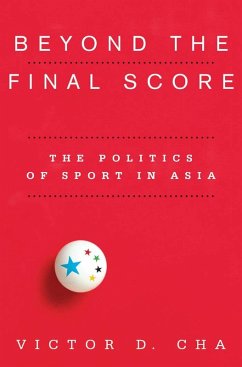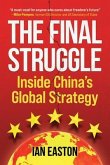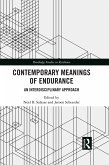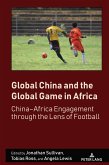The Beijing Olympics will be remembered as the largest, most expensive, and most widely watched event of the modern Olympic era. But did China present itself as a responsible host and an emergent international power, much like Japan during the 1964 Tokyo Games and South Korea during the 1988 Seoul Games? Or was Beijing in 2008 more like Berlin in 1936, when Germany took advantage of the global spotlight to promote its political ideology at home and abroad?
Beyond the Final Score takes an original look at the 2008 Beijing games within the context of the politics of sport in Asia. Asian athletics are bound up with notions of national identity and nationalism, refracting political intent and the processes of globalization. Sporting events can generate diplomatic breakthroughs (as with the results of Nixon and Mao's "ping-pong diplomacy") or breakdowns (as when an athlete defects to another country). For China, the Beijing Games introduced a liberalizing ethos that its authoritative regime could ignore only at its peril.
Victor D. Chäformer director of Asian affairs for the White House¿evaluates Beijing's contention with this pressure considering the intense scrutiny China already faced on issues of counterproliferation, global warming, and free trade. He begins with the arguments that tie Asian sport to international affairs and follows with an explanation of athletics as they relate to identity, diplomacy, and transformation. Enhanced by Cha's remarkable facility with the history and politics of sport, Beyond the Final Score is the definitive examination of the events¿both good and bad¿that took place during the Beijing Olympics.
Beyond the Final Score takes an original look at the 2008 Beijing games within the context of the politics of sport in Asia. Asian athletics are bound up with notions of national identity and nationalism, refracting political intent and the processes of globalization. Sporting events can generate diplomatic breakthroughs (as with the results of Nixon and Mao's "ping-pong diplomacy") or breakdowns (as when an athlete defects to another country). For China, the Beijing Games introduced a liberalizing ethos that its authoritative regime could ignore only at its peril.
Victor D. Chäformer director of Asian affairs for the White House¿evaluates Beijing's contention with this pressure considering the intense scrutiny China already faced on issues of counterproliferation, global warming, and free trade. He begins with the arguments that tie Asian sport to international affairs and follows with an explanation of athletics as they relate to identity, diplomacy, and transformation. Enhanced by Cha's remarkable facility with the history and politics of sport, Beyond the Final Score is the definitive examination of the events¿both good and bad¿that took place during the Beijing Olympics.
Dieser Download kann aus rechtlichen Gründen nur mit Rechnungsadresse in A, D ausgeliefert werden.









